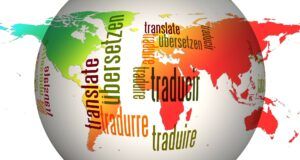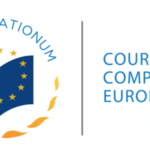Objectives
The objective of this pilot project is to draw up a sustainable evidence-based strategic research agenda and roadmap setting out actions, processes, tools and actors to achieve full digital language equality of all languages (official or otherwise) used within the Union through the effective use of language technologies. The research agenda should lay out the current state of language technologies and language equality within the Union and give a detailed picture of the desired situation that is needed to achieve digital language equality. The roadmap will then provide the path and the means needed to implement the agenda and ensure that digital language equality becomes a reality by 2030.
Research agenda
The selected project will create a research agenda, which will:
- Map relevant stakeholders and initiatives and liaise with them through public consultations and on-going dialogues;
- Map relevant technologies, in particular based on artificial intelligence, assess their impact on the linguistic landscape and then analyse the conditions required to maintain and improve the required knowledge within Europe;
- Identify key research areas and gaps in research that need to be addressed to ensure language technologies can overcome the linguistic divide;
- Define the varying needs for language technologies (not only machine translation) across all the sectors that make up the European Digital Single Market and across languages used within the EU and its partner countries, but especially the lesser-used or under-resourced languages.
Roadmap for achieving digital language equality
In addition to the research agenda, the project will create a roadmap whose implementation will achieve digital language equality by 2030. This roadmap will define:
- Tools, processes, actions and actors required to achieve full language equality for all sectors and stakeholders in the EU by 2030;
- A reasoned prioritisation of actions to be taken, with clear milestones and accountabilities , to ensure the roadmap can be followed successfully and completed on time;
- Key performance indicators for measuring progress/success in the implementation of the roadmap produced by the project;
- How to ensure the knowledge and skills for implementing the roadmap remain within the Union to foster the EU’s technological sovereignty in this critical area;
- A cost analysis of the funding requirements needed to ensure the roadmap can be successfully followed;
- The necessary stakeholders and actors that need to be involved to ensure that by 2030 no European languages remain at risk of digital extinction.
Dissemination and awareness-raising
An important aspect to a successful implementation of the roadmap will be dissemination and awareness-raising activities (including events, consultations, social media and dialogues). These will need to engage with all relevant stakeholders to ensure broad buy-in by the European language technology industry and research sectors, as well as with digital information providers and the citizen in general.
The aim of this project is to establish a practical, implementable and achievable agenda and roadmap, demonstrating the vast potential of digital language technologies for the broadest possible range of sectors and stakeholders. The engagement and dissemination activities, therefore, need to reach beyond long-standing actors in the language technology industry and draw in views and use cases from new stakeholders and sectors.
Deadline
29 July 2020 17:00:00 Brussels time







Leave a Reply